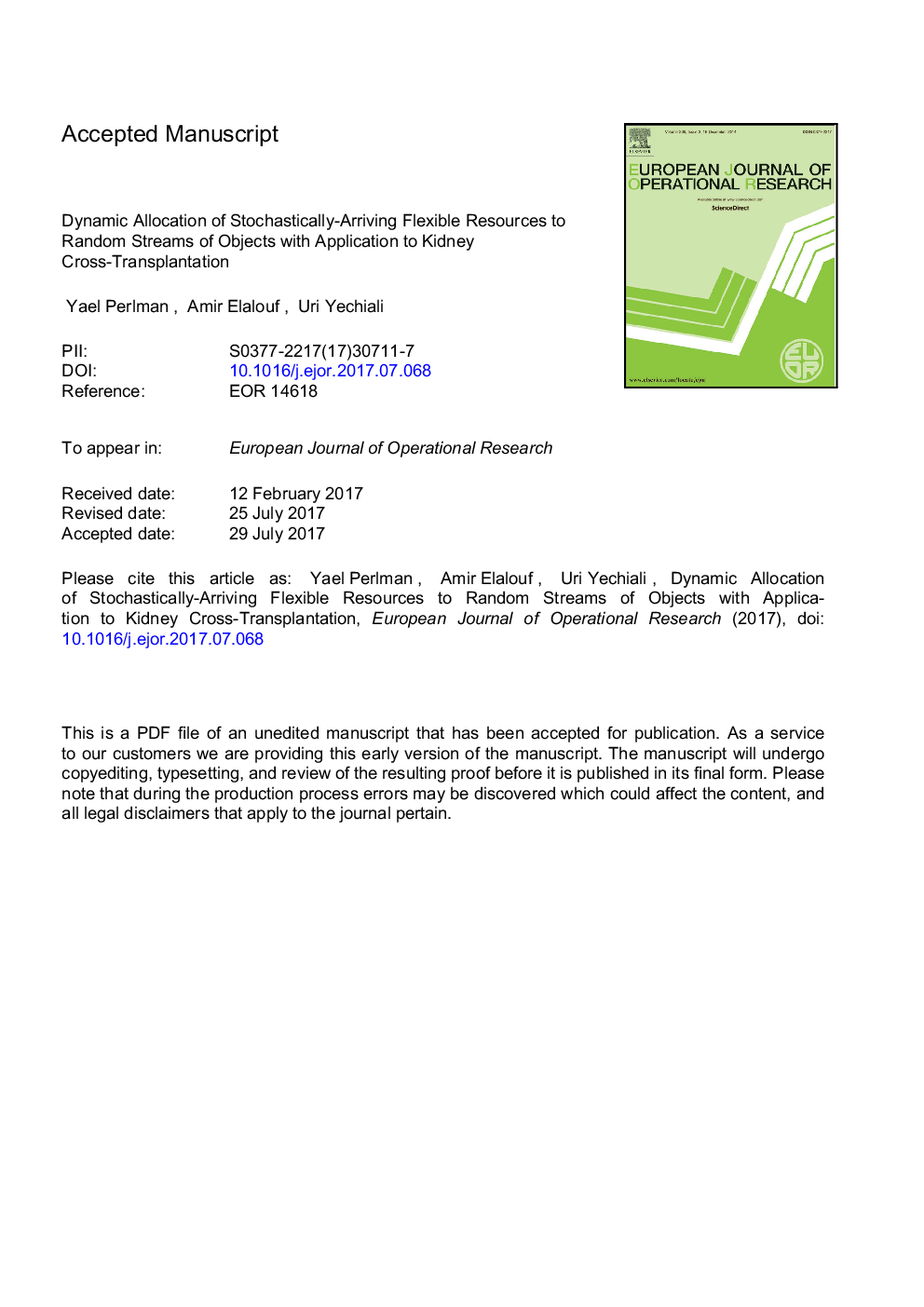| Article ID | Journal | Published Year | Pages | File Type |
|---|---|---|---|---|
| 6895369 | European Journal of Operational Research | 2018 | 30 Pages |
Abstract
Two distinct random streams of discrete objects flow into a system and queue in two separate lines. Concurrently, two distinct types of resources arrive stochastically over time. Upon arrival, each resource unit is matched with a waiting object. One resource type is ʻflexible' and can be allocated to either one of the object types. However, units of the other, non-flexible, resource type can be allocated only to units of one specific object type. The allocation probabilities are not fixed and may depend on both queue sizes of the two objects. If a resource unit is not allocated immediately, it is lost. The goal is to find an optimal state-dependent probabilistic dynamic allocation policy. We formulate the system as a two-dimensional Markov process, analyze its probabilistic behavior, and derive its performance measures. We then apply the model to the problem of kidney cross-transplantation and propose a new measure of system effectiveness, called Expected Value of Transplantation (EVT), based on the histocompatibility between kidneys and candidates. We further show that it is possible to balance the objectives of achieving equity in candidates' expected waiting times (EW) and maximizing EVT by equating the value of EW/EVT between the two groups.
Related Topics
Physical Sciences and Engineering
Computer Science
Computer Science (General)
Authors
Yael Perlman, Amir Elalouf, Uri Yechiali,
